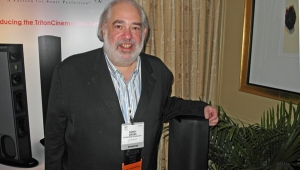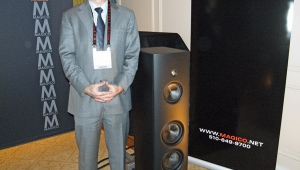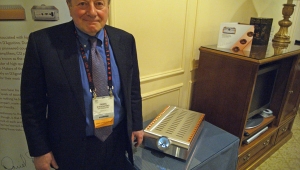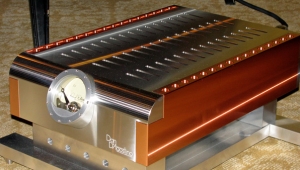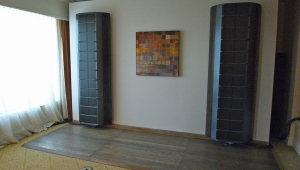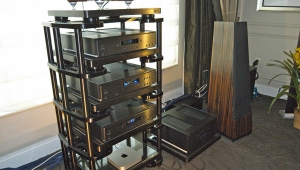| Columns Retired Columns & Blogs |
I have also been witness to a similar startling effect in my listening room. One night I came home from work to find that my chihuahua had an accident right in the middle of said room. Before I went off to get the rug cleaner and some paper towels I decided to turn on some music. (Everyone is well aware of the soothing quality of music when picking up dog excrement). Well, as I backed away to leave the room I was absolutely stunned by the increased clarity and depth in the music. Mind you, I have had this particular system for a number of years, and I was well aware of its capabilities. After getting over my initial shock, I put two and two together (pun intended). It was the excrement that had changed the sound. I was able to modulate the effect by moving it around the room.I have spent the last several years improving the effect through changes in my dog's diet and the use of a proprietary platform that I developed. This incredible system will soon be available to the general public for $398 per unit. I currently have 4 in my listening space. I would love for Jason to come over and audition this groundbreaking product.










